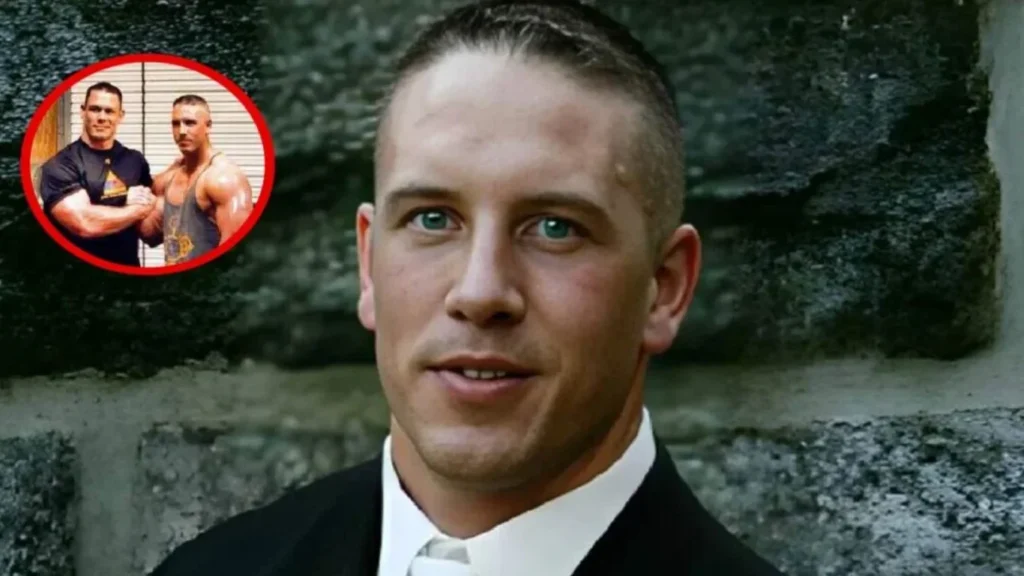Roderick Renowned psychologist Jeffrey Watts has made significant and revolutionary contributions to the domains of social justice and psychology. Even though he frequently works in the background, there is no denying his impact on promoting fairness and empowering communities. Watts, who is married to Pulitzer Prize-winning novelist Isabel Wilkerson, has crafted a unique profession that combines social duty with justice.
Watts has been committed to tackling societal injustices via his work, especially in the fields of community development and mental health. His strategy places a strong emphasis on developing nurturing surroundings that promote both individual and group development. He has motivated people and organisations to address systemic issues with workable solutions by promoting the value of psychological resilience, social equality, and empowerment.
In this exploration of Roderick Jeffrey Watts’ life and career, we delve into the philosophies that have guided his professional journey. His legacy in psychology is marked not just by his academic achievements, but also by his relentless pursuit of equity, making a lasting impact that extends well beyond his field.
Wiki
| Detail | Description |
|---|---|
| Full Name | Roderick Jeffrey Watts |
| Profession | Professor of Psychology |
| Specialization | Personality Psychology, Social Justice |
| Education | Ph.D. in Clinical-Community Psychology |
| Teaching Positions | New York Graduate Center, DePaul University, Stellenbosch University |
| Notable Works | Co-editor of “Human Diversity: Perspectives” |
| Advocacy Focus | Social justice, mental health, racial equality |
| Marital Status | Married to Isabel Wilkerson |
| Personal Interests | Reading, Music |
| Philosophy | Integration of psychology with social justice to address and mitigate oppression and its effects |

Who Is Roderick Jeffrey Watts?
Roderick Jeffrey Watts is a renowned psychologist with a focus on social justice and personality psychoanalysis. He is wed to Isabel Wilkerson, a well-known journalist who won the Pulitzer Prize and wrote Caste: The Origins of Our Discontents. In 1989, the pair tied the knot in Maryland.
As the first African-American woman to win a Pulitzer Prize, Isabel Wilkerson has received recognition for her innovative contributions to journalism. She has become a significant presence in the realm of social concerns, especially racial inequity, and her writing continues to inspire others.
Roderick Jeffrey Watts’ Early Life
Details about Roderick Jeffrey Watts’ early life are relatively private, but it is known that he grew up in a family with a strong commitment to community service. His mother worked as an office manager at Black Dimensions, while his father served as a key health planner for the New York State Department of Health. These influences helped shape his dedication to social issues and community engagement.
Roderick Jeffrey Watts’ Career
Roderick Jeffrey Watts is a prominent professor of psychology, currently teaching at the New York Graduate Center. His academic focus is on personality psychology, with a particular interest in men’s development. Throughout his career, he has been deeply committed to exploring the dynamics of oppression and social identity, particularly as they intersect with race and justice.
In addition to his teaching role, Watts co-edited the influential book Human Diversity: Perspectives, which explores the complexity of human differences through a psychological lens. His work often includes collaborations with organizations supporting African American youth, especially in the realms of psychological health and community development.
Watts has also taught at institutions such as DePaul University and Stellenbosch University and continues to contribute to academic discussions through his visiting faculty positions, including at Georgia State University. Holding a Ph.D. in Clinical-Community Psychology, his teaching spans a variety of subjects, including qualitative research, African American psychology, and program assessment.
Brett Kelly Hamilton: Isabel Wilkerson’s First Spouse
Before marrying Roderick Jeffrey Watts, Isabel Wilkerson was previously married to Brett Kelly Hamilton, who passed away unexpectedly on July 19, 2015, at the age of 46. Hamilton, originally from Atlanta, was a highly educated professional, holding degrees in mathematics and physics from Centre College and Grady High School. He worked as an actuary and financial analyst within the healthcare sector in Texas, Kentucky, and Atlanta.
Despite facing significant health challenges, including a rare nonmalignant brain tumor diagnosed in 2000, Hamilton maintained his compassionate and upbeat nature. He was known for his love of family and his joy in teaching his children practical life lessons such as fair play, as well as supporting their academic interests in science and math.
Brett was an active member of the Phi Kappa Tau Delta Chapter in college and enjoyed participating in various activities such as cave excursions and storm watching. He was also deeply committed to supporting his partner Isabel’s work in social justice and frequently traveled to Europe to further her advocacy efforts.

Major Contributions and Publications
Human Diversity: Perspectives, a book he co-edited that explores human behaviour in several cultural and socioeconomic circumstances, is among his most important publications. Watts’ deep comprehension of the complex interrelationship between society systems and personal psychology is demonstrated by this and other works. His works, which provide a comprehensive examination of the challenges associated with researching different groups, are priceless tools for practitioners and students alike.
Personal Philosophy and Impact
The confluence of social justice and psychology is at the heart of Watts’ professional philosophy. He supports an all-encompassing method of studying human behaviour that considers the ingrained societal injustices that influence people’s lives. With a special focus on working with African American teenagers, Watts creates programs that not only promote personal growth but also provide them the means to overcome the structural obstacles they encounter. His study feeds community-based initiatives that enable people to develop resilience in the face of hardship, demonstrating that his work transcends academic theory into real-world applications.
Teaching and Mentorship
Roderick Jeffrey Watts is well known for his engaging style of mentoring and instruction. Having taught at esteemed universities such as DePaul University and the New York Graduate Centre, he has impacted many students who are interested in a future in psychology, especially social justice-focused psychology. Watts places a strong emphasis on fostering his students’ intellectual and personal development in order to set them up for professional success and social influence.
Advocacy and Community Engagement
Watts is actively engaged in advocacy activities related to mental health and racial fairness outside of the classroom. Numerous boards and committees that address social injustices in healthcare and education frequently seek his assistance. Watts plays a crucial part in confronting and removing structural obstacles that disadvantaged communities face by utilising his findings to guide community initiatives and legislative improvements. His active participation in these fields demonstrates his steadfast dedication to promoting social change via his research and hands-on community engagement.
Personal Life
While much of Roderick Watts’ life is dedicated to his professional endeavors and advocacy, he also values a quiet personal life. He shares this life with his spouse, Isabel Wilkerson, with whom he collaborates on projects that align with their shared commitment to social justice. In his personal time, Watts enjoys reading and music, activities that provide him with the relaxation and emotional balance necessary to sustain his demanding work.

Legacy and Future Impact
As Roderick Jeffrey Watts continues to build on his legacy, his research and community initiatives promise to further advance the integration of psychology and social justice. His ongoing work challenges existing frameworks, pushing for innovative approaches that promote societal well-being. With a foundation rooted in rigorous scholarship and a genuine commitment to social change, Watts is poised to inspire future generations of scholars and activists who will continue his work and drive progress in these critical areas.
Read More: Adam Hinds
Final Words
Roderick Jeffrey Watts’ work is a potent combination of social justice and psychology that has influenced both scholarly thinking and practical change. He has had a long-lasting influence on the domains of personality psychology, diversity, and community empowerment through his studies, instruction, and advocacy. Future generations are still motivated and educated by his dedication to tackling systematic injustices, which gives them hope for a society that is more just and caring. Watts continues to be a driving force in expanding the possibilities of psychology’s application to both individual welfare and societal justice as his career develops.
FAQs
1. Who is Roderick Jeffrey Watts?
Roderick Jeffrey Watts is a prominent psychologist, educator, and advocate, specializing in personality psychology and social justice. He is married to Pulitzer Prize-winning journalist Isabel Wilkerson. Watts has contributed significantly to the academic field and is particularly known for his work with African American adolescents and community empowerment.
2. What are some of Roderick Jeffrey Watts’ major publications?
Roderick Watts co-edited the book Human Diversity: Perspectives, which explores human behavior through the lenses of various cultural and social structures. This work, among others, highlights the intersection of psychology and societal factors such as race, identity, and oppression.
3. What is Roderick Watts’ philosophy regarding psychology and social justice?
Watts believes that understanding and improving human behavior requires a deep consideration of social inequalities. His philosophy integrates psychology with social justice, aiming to address and mitigate the effects of oppression through research and practical community programs.
4. Where has Roderick Jeffrey Watts taught?
Roderick Watts has taught at several institutions, including DePaul University, Stellenbosch University, and the New York Graduate Center. He also frequently visits Georgia State University to contribute to their academic programs.
5. How does Roderick Watts contribute to community advocacy?
In addition to his academic work, Watts is actively involved in advocacy focused on racial equity, mental health, and social justice. He serves on various boards and committees, using his expertise to influence policies and programs aimed at dismantling systemic barriers in healthcare and education.
6. What is Roderick Watts’ approach to mentoring students?
Watts is known for his dynamic teaching style and commitment to mentorship. He focuses not only on academic growth but also on the personal development of his students, encouraging them to make meaningful contributions to society and to pursue careers that align with their values in social justice.
7. What are Roderick Watts’ personal interests?
Outside of his professional work, Watts enjoys reading and listening to music, which he considers essential for his mental and emotional well-being. These hobbies help him recharge and maintain a balance in his demanding career.
8. What is Roderick Jeffrey Watts’ legacy?
Roderick Watts is leaving a lasting legacy through his research, teaching, and advocacy efforts. His work continues to push the boundaries of psychology and social justice, inspiring future generations to build on his commitment to equity, empowerment, and systemic change.
Releated Post: Talita Roberta


